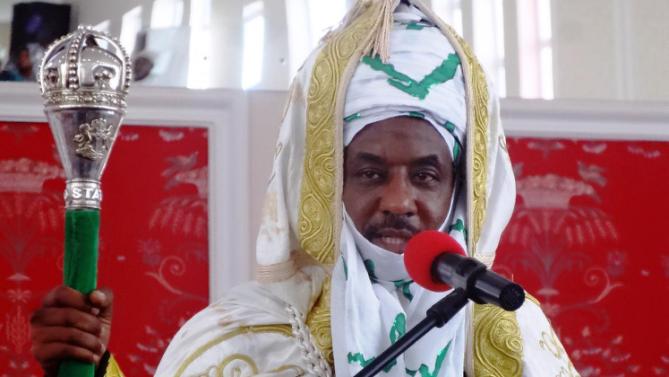The Emir of Kano, HRH Muhammadu Sanusi II, has warned the Federal Government against selling critical government transportation infrastructure across the country.
The Emir at the Federal Ministry of Transportation stakeholders workshop on ‘Road Transport Management and Mass Transit Operations In Nigeria’ in Abuja yesterday, said whilst private sector capital is necessary to close the gap in transportation infrastructure deficit, the government must retain ownership while allowing windows for the private investors recoup their investments plus interests.
He said, “In the wake of inefficiency and lack of sufficient government investments into critical transportation infrastructure like highways, railways, airports and seaports, the government has been considering selling off some of its transports assets to private sector investors.
Continuing, the Emir added that, “Critical transportation infrastructure like roads, rails, sea ports, airports must belong to the public while allowing private investors to recoup their investments. That balance is critical in going into partnerships and negotiations.
The private sector can build, operate and make profits but the facility still belongs to government. Government cannot afford to hand over sea ports, railways and airports especially for security reasons.”
The investors will have to have access to recover their investments but not total ownership of the infrastructure he further noted. Mallam Sanusi asserted that government must fashion out a transport policy that works for all as transportation is a fundamental human right.
The Emir also spoke on what government needs to do to evolve an efficient transport system that will encourage private sector investments.
“You can’t talk about private investments into transportation without looking at the macroeconomic environment and government policies towards transport. We need to create enabling environment that will attract local and foreign investments. Is there an overarching consensus on that? Is there the right form of tax incentives, the right form of concessions, and the right ease of doing business and so on? If not, you can have these beautiful plans of building these roads but in the end you will be building castles in the air,” he said.
He highlighted themes that should underline policy document on transportation. They include; that the market be based competition that allows private companies to provide infrastructure and services. Secondly, there should be sustainable way to recover cost of investments and the third is that economic development and linkages and externalities must happen for an efficient transport system to happen.
“If you have an efficient transport sector you don’t need a car, you can save your cash and use it for some other critical needs” he said.
Also speaking, the Minister of Transportation, Mr Rotimi Amaechi decried lack of a workable transportation policy in Nigeria and challenged participants to evolve a workable document at the workshop. Amaechi tasked participants at the workshop to redefine mass transit operations in Nigeria, short medium and long-term policies to address challenges in the road transport segment and evolve mechanisms for non-motorized transport systems like cycling and walking.




 Premier League
Premier League